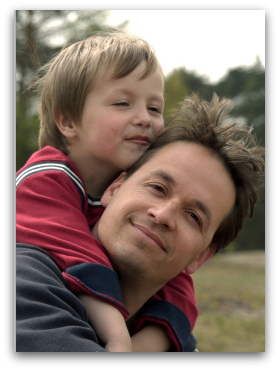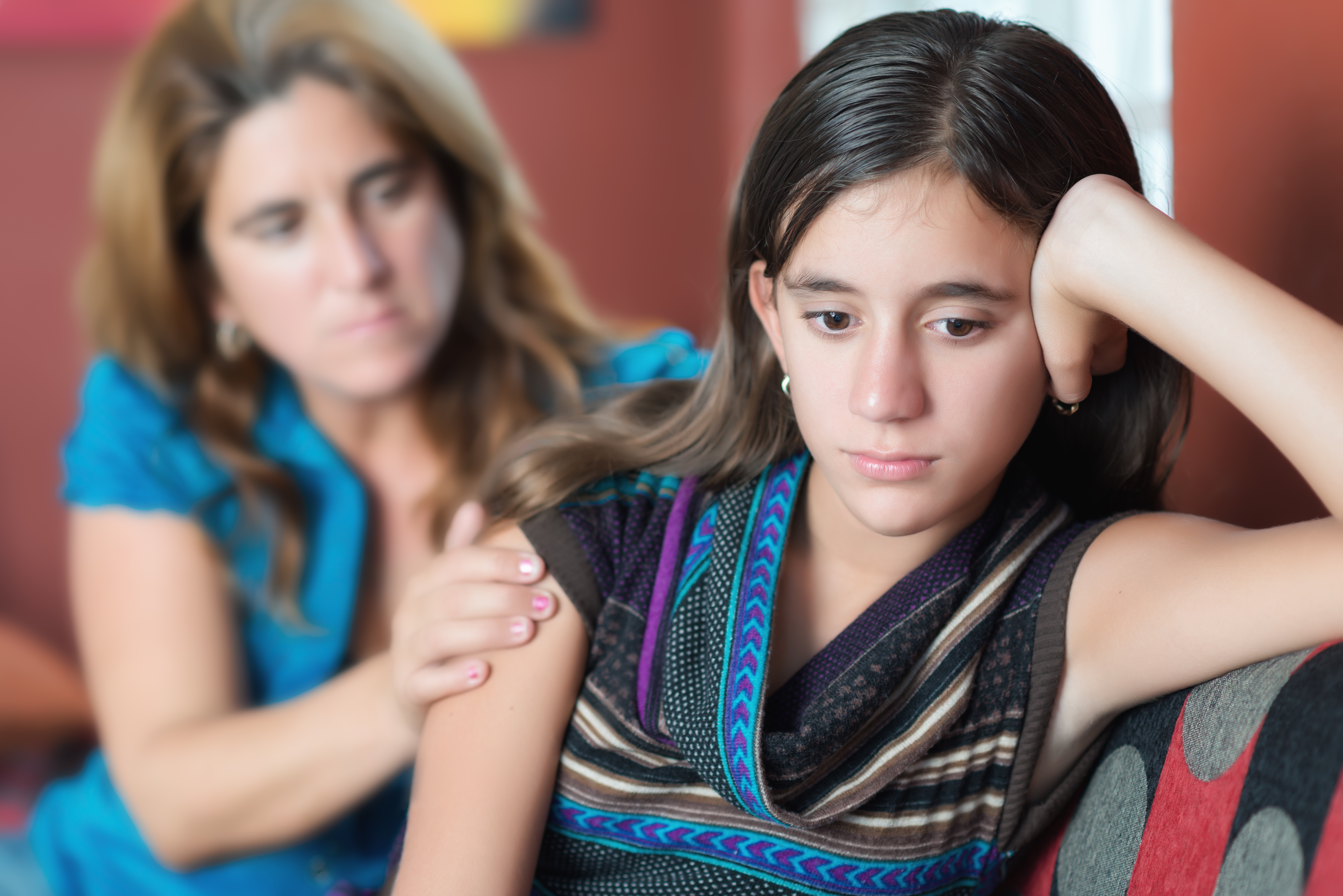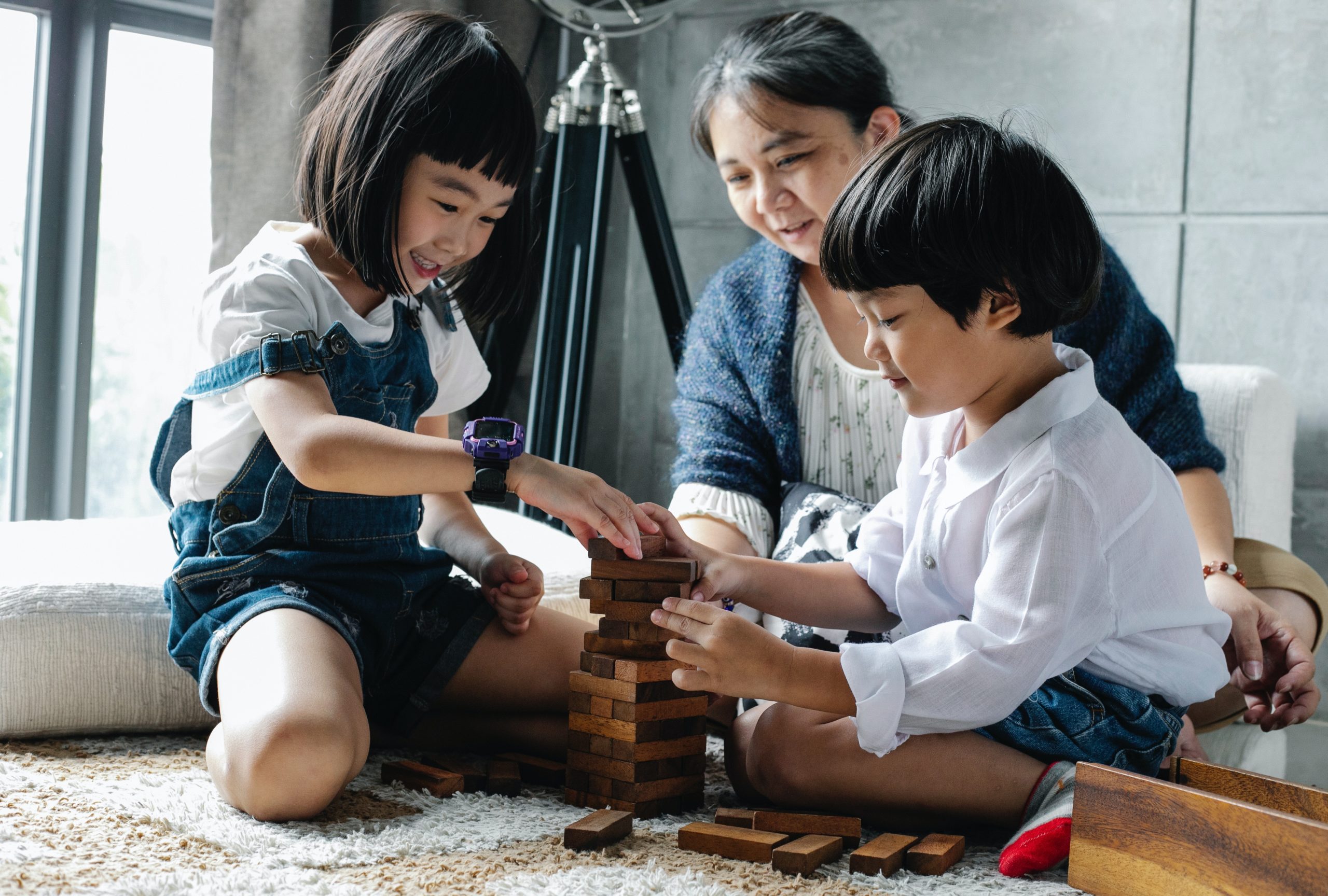A parent asks:
I have a 3 year old boy who has got into a ‘habit’ when things don’t go his way of saying “I’m sad mumma, very, very sad” (bottom lip out, sometimes tears). I’m so stuck as to what to do. At first I was repeating it to him, saying it’s okay to be sad and helping him find ways to make himself feel happy again. Now it just feels like he uses it to manipulate me. Now I’ve started saying “We make choices on how we feel, choose to be happy”…. it’s like his glass is 1/2 empty! And i’m such a positive person so it’s really hard to hear him saying this and being all “poor me!”…. Ahhhhh, SOS!!! Any advice as to which way to go or what to say would be greatly appreciated.
Genevieve’s response:
Firstly, I hear and acknowledge your frustration. It takes a lot of love, patience and commitment to care for our children when they’re unhappy, we need to draw on our empathy for our child, which of course becomes very difficult when confused about what’s really going on, and why they are expressing what they are. Hopefully I can reassure you that empathizing and connecting patiently at such times, even when you don’t understand why he’s sad, is a healthy response.
And how great that your boy is learning to identify, label and put words to his feelings. “Sad” may relate to a whole range of different emotions at the moment like bored, nervous, tired, frustrated, annoyed, confused, disappointed and yes sad which often relates to a need for emotional connection and validation, but what a great step in the right direction of developing his emotional intelligence.
Many adults struggle to identify and express their raw feelings,
and instead will complain endlessly about others without a clear awareness of what’s being stirred up. People often feel at the mercy of how others make them feel because they don’t yet have a healthy positive relationship with their own feelings (relating back to how their parents responded to their feelings) and struggle to bring themselves back to a more balanced state. Or worse still, repress and deny their emotions causing much inner conflict and disempowerment in their life.
However, children then adults who have a conscious awareness of their feelings, who are in touch with their inner world and can express their feelings and needs clearly tend to be more equipped to work through their life’s challenges and more able to seek and access the emotional support that they need. The child who can identify and express their raw feelings is much less likely to act out aggressively towards others or self.
Often when a child seems to be exaggerating a feeling,
or making a point of bringing the adult’s attention to that feeling, it’s because they have an unsatisfied sense of not gaining the acceptance and validation they need when they show that feeling. So they keep expressing the same feeling; “I’m sad mum, sad mum, my sad mum” not because they’ve developed a habit, but because they’ve become stuck in that feeling. A child can get stuck in a feeling when they don’t manage to get it out of their system, hence they fall back into it at the slightest challenge.
I can really understand your confusion because the messages that children shouldn’t “act up when they don’t get their way” and that children manipulate their parents and that we shouldn’t “buy into it” come at a parent from every possible angle. A three year old doesn’t fake sadness and tears, children want to feel happy, settled and at peace.
Putting yourself in your child’s shoes.
With the parents I help one on one, I often take them on a little imaginative journey to imagine being their child’s age, height and stage, I ask them to think about their child’s body language, facial expressions and tone of voice at times when expressing that which the parent struggles with and to see if they can imagine being just like that: Small, upset, vulnerable, dependent, confused, in need of being understood and helped with their feelings. Without fail, parents gains some really valuable insights into what their child is most likely feeling and needing and words like “manipulation” and urges to ignore or change their child dissipate and what takes it’s place is genuine empathy and a willingness to connect in a way that shows them that their parent can truly accept their whole range of feelings and work with them.
The first track on my Stress Relief for Parents CD guides parents through this process to help the listener gain more clarity, understanding and resolution relating to a challenging issue that repeatedly arises with their child, whether it’s arguing with a sibling, whining, resistance to jobs, getting them to sleep or any other issue that tends to be a trigger.
It could also be interesting to explore how you were truly feeling inside when you were telling him “it’s ok to be sad”,
I wonder if he was convinced, there may or may not have been some inner tension that he was picking up on inhibiting him gaining the satisfaction of feeling heard and understood that a child so desperately needs from their parent, teacher or other attachment figure.
Take some time and maybe access some support for yourself to seek to understand what’s happening with your little boy without using the words and perspectives of “manipulating” and “poor me”. These labels tend to make it difficult for a parent to look beneath the behaviour to the feelings and unmet needs driving the behaviour. You can use my Feelings and Needs Chart and my Basic Emotional Needs Check List as guidelines.
And also might be interesting to do some journalling to gain some deeper insights into your self-image of being a “positive person”. It sounds like you maybe use the strategy of choosing how you feel and choosing to be happy. Yet there’s a lot more freedom and value in learning to be more and more okay and at peace with ourselves in our whole range of feelings.
The freedom of accepting the whole range of feelings – for our child, for ourselves!
Yes we all make choices all the time about how we want to be and what we chose to focus our attention on, but we live in a society that glorifies strong, happy, positive and independent and harshly judges sad, mad, weak, vulnerable and dependent.
Yet as a counsellor having helped thousands of people explore and be honest about what they really feel and then learning to honour those feelings, I’m very aware that so many of the deep, rich, passionate qualities can get lost when a person is given the message as a child that happy and positive are good and sad and mad are not. Rather than telling him to chose to be happy instead of sad, show him that you allow, love and accept him in his ups and his downs, his highs and his lows. Below are a couple of articles that might be helpful. ~ Genevieve









